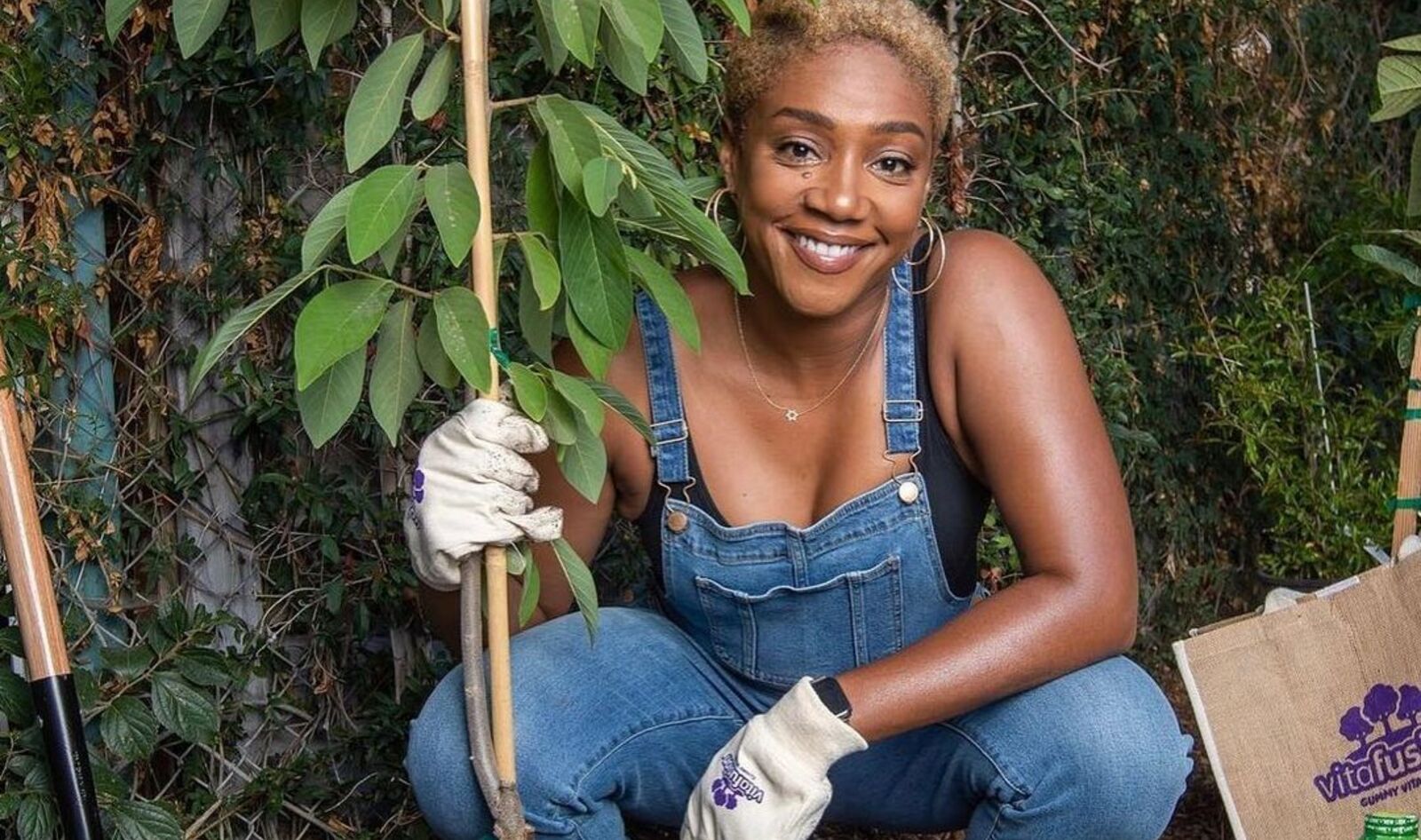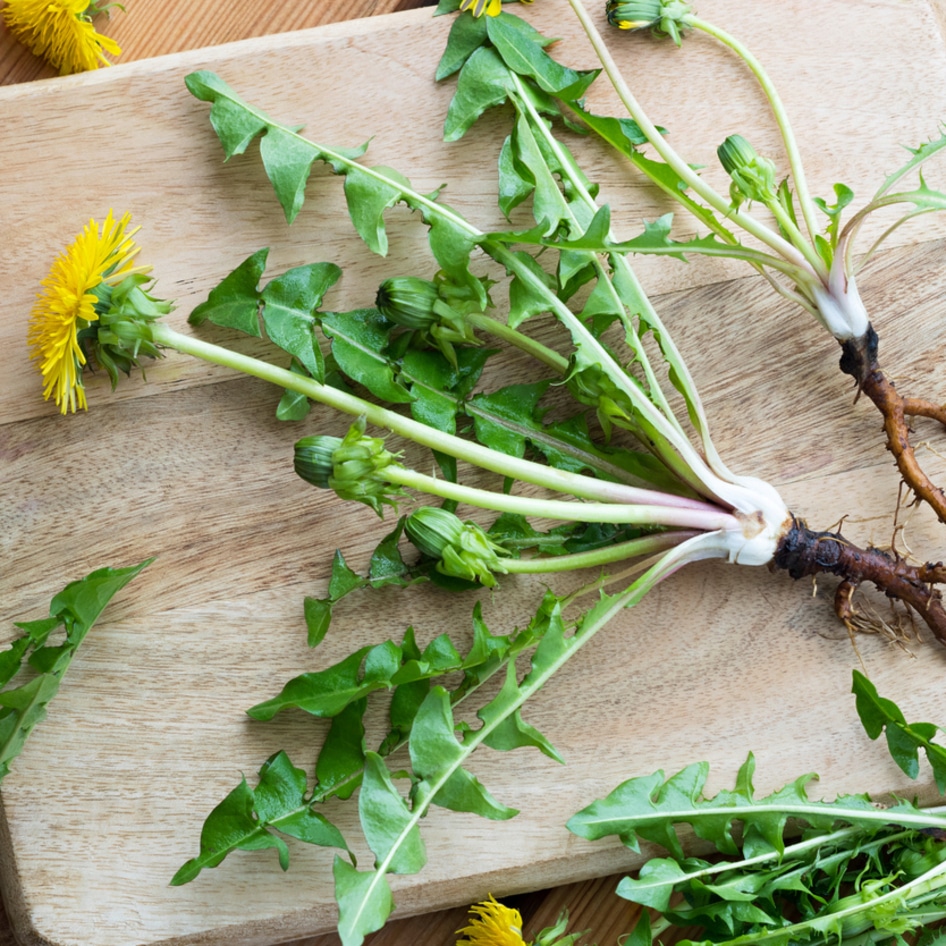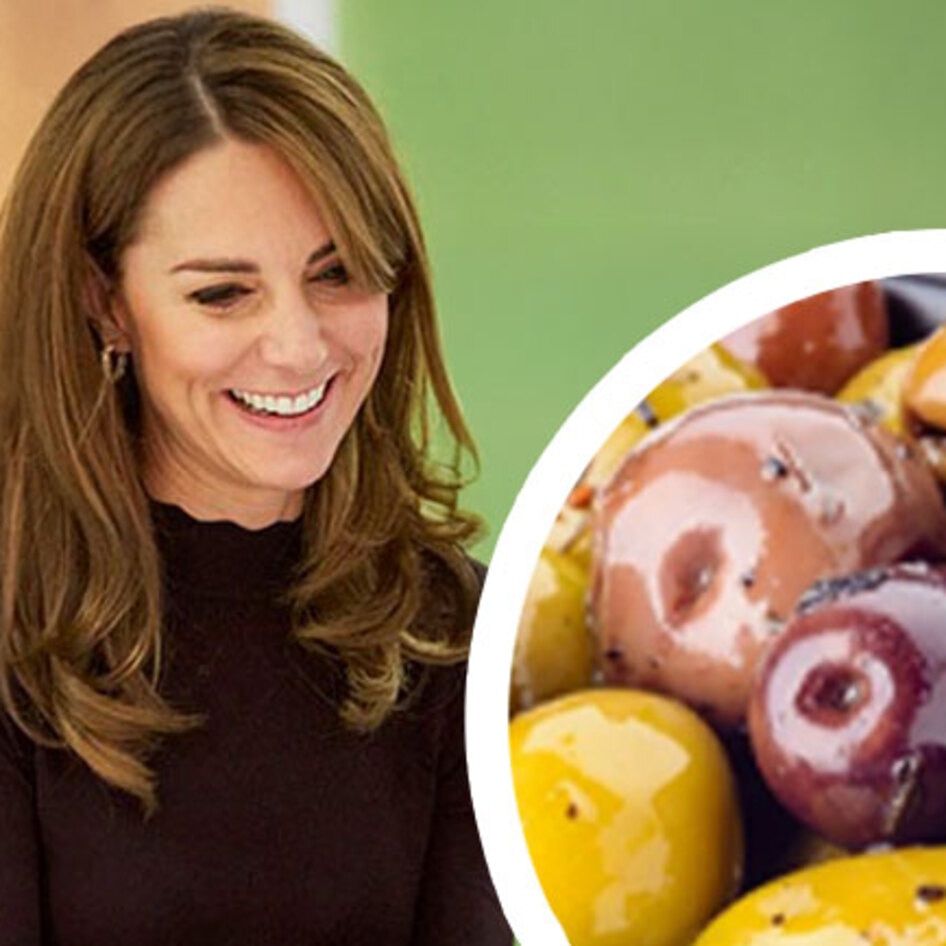Imagine a world filled with food forests. One where you can head to a public park or a community garden and find plenty of free, nutritious, juicy fruit to snack on. In these forests, food is sustainable and organic, and it doesn’t just feed us, but it helps wildlife to thrive, too. Sounds idyllic, right? Well, The Fruit Tree Planting Foundation (FTPF) doesn’t think this picture is that far out of reach. In fact, the international charity, which is focused predominantly on alleviating world hunger, is working towards making it a reality every day. “[We have] a shared vision of a world full of abundance,” Co-creator and ‘TreeEO’ Cem Akin tells VegNews. “With more environmentally-friendly practices and a reduced reliance on animal agriculture.”
FTPF has a unique mission. It’s striving to help the environment, human health, and animal welfare with fruit. In the last four years, it has planted and distributed more than 257,000 trees—a key part of its overall mission to build fruitful communities all over the world. Here’s more about the nonprofit’s mission and impact, but also how we can all benefit from having more fruit trees in our lives.
The Fruit Tree Planting Foundation is changing lives
Founded in the early 2000s, FTPF has worked with communities all over the world to help alleviate food insecurity and improve nutrition. It has, of course, planted trees, but it has also helped to educate school students, hosted workshops, and trained many orchard caretakers. “Over the years, so many moments have inspired us after seeing first-hand how communities come together around our orchard projects,” Akin says.
He spoke about a recent trip to El Salvador, where members of the FTPF team hosted a planting and care workshop. After the session, the group drank from coconuts and sheltered from the sun under a mango tree.
“As we sat there appreciating the trees for all they provide us, we learned that both the mangos and coconuts were planted as part of our program several years ago,” Akin recalls. “We learned that all 24 participating communities in the region are reporting economic profits from the initiative, providing a critical livelihood for families.”
It’s easy to see FTPF’s mission as idealistic. But its work is having real, tangible results. And not just in El Salvador. Akin also spoke of a school project in Jinja, Uganda, for example, which continues to provide nutrition for each and every student and teacher. In Pittsburgh, one of FTPF’s orchards provides fresh fruit for a food pantry at a church, which helps to distribute food to local families in need. “There are thousands of similar examples from around the world where FTPF trees are helping provide communities and families with essential nutrition and sources of income,” Akin says.
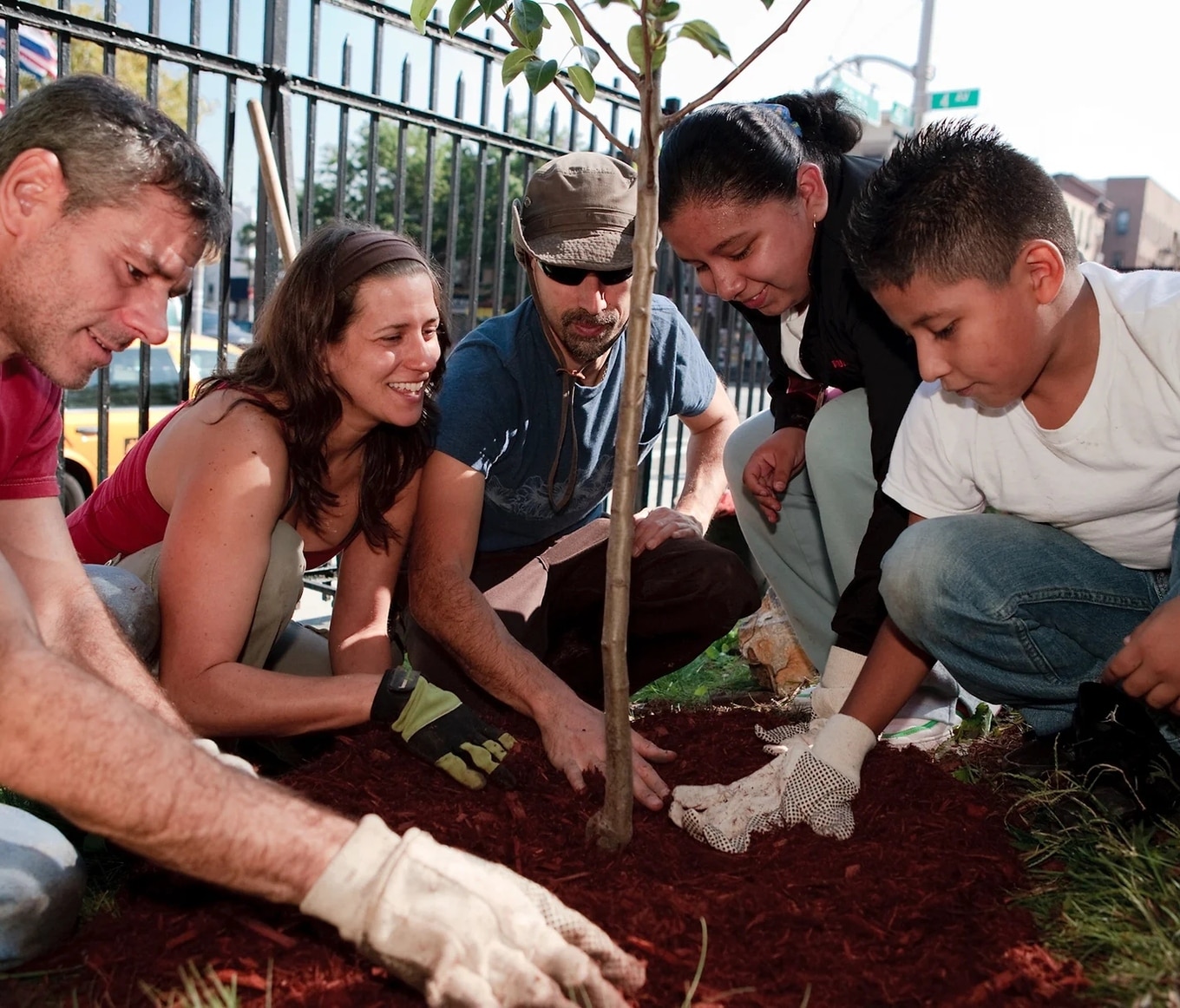 The Fruit Tree Planting Foundation
The Fruit Tree Planting Foundation
The benefits of fruit tree planting
FTPF’s mission has many benefits, the most obvious of which is helping to provide communities with nutritious, fresh, organic food. But planting trees also has significant environmental benefits. After all, as they grow, trees help to absorb carbon dioxide from the atmosphere—research suggests that just one standard tree can absorb around 21 kilograms of carbon dioxide each year. Trees also provide us with oxygen, which, of course, humans need to survive. In fact, according to FTPF, in 2022, its orchards provided the world with 6 million pounds of oxygen, as well as 1.7 million pounds of harvest.
Trees are also good for our mental health, too. Research suggests that spending time around them can lower our blood pressure and improve our mood. In fact, according to the World Economic Forum, trees in cities may even help reduce the need for antidepressants, as they help to reduce levels of stress and anxiety.
Truthfully, it’s hard to overestimate the far-reaching positive influence of trees. “The University of Georgia quantified the benefits of trees in the community by finding positive impacts on noise pollution, water quality, erosion, animal habitats, property values, air quality, and human social interactions,” Akin notes.
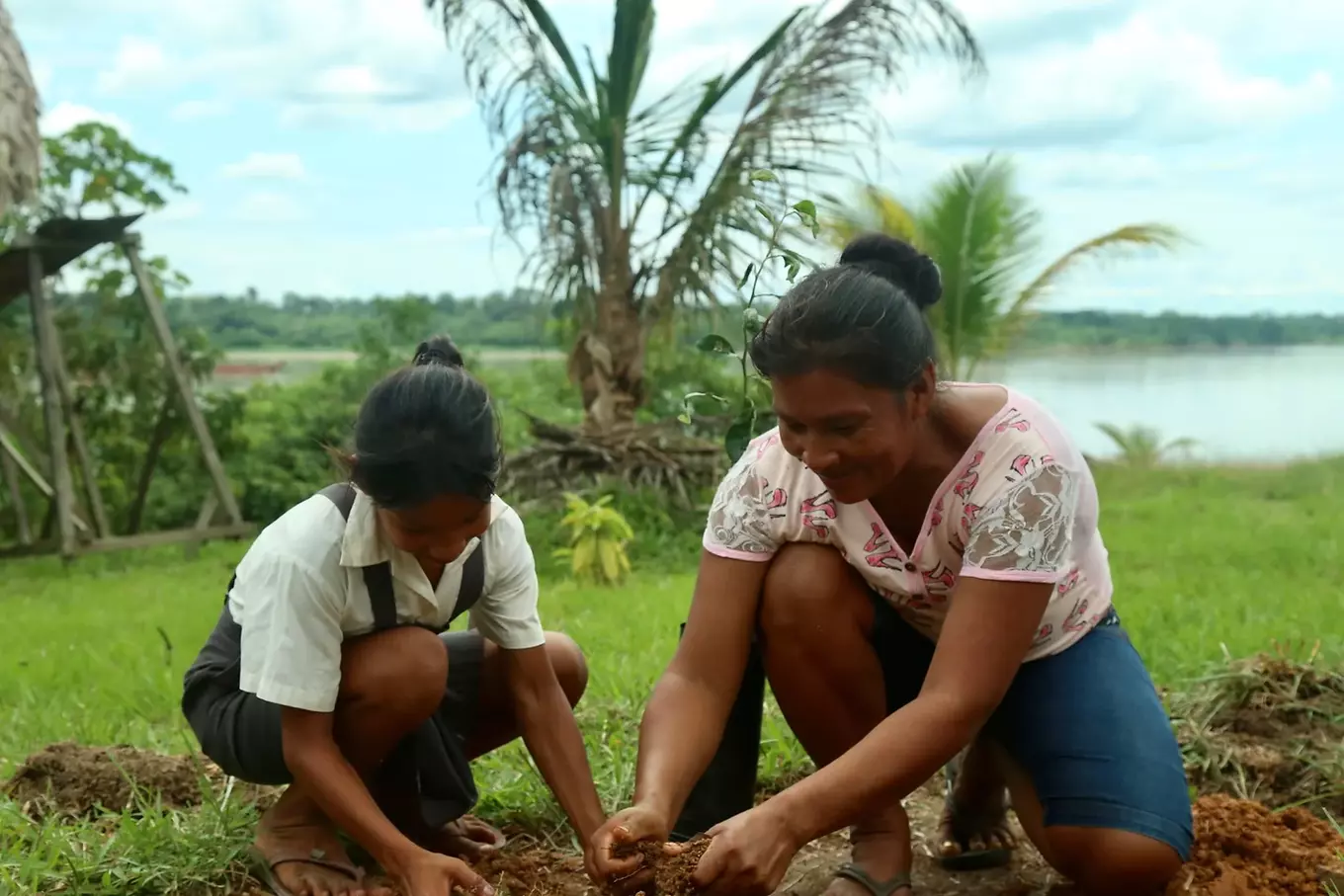 The Fruit Tree Planting Foundation
The Fruit Tree Planting Foundation
How to plant your own fruit orchard
If you have the means and the space, you can reap all of the benefits of fruit trees by planting them in your own backyard.
To follow in FTPF’s footsteps, use veganic gardening principles (which means using vegan and organic tools and products—find our guide to veganic gardening here), which will help to guarantee earth- and animal-friendly results. And you should also make sure you’re choosing the right tree for your yard. If you have a smaller space, opt for dwarf trees, for example, or if you’re blessed with a large garden, you could consider full-sized standard fruit trees. You should also consider the resources that trees need to thrive, too.
“Important factors to consider include access to full sunlight (6-8 hours minimum for most fruit trees), reliable irrigation, well-draining soils, good air circulation, plenty of room for trees to grow to their mature sizes, protection from animals who might cause damage (using only non-lethal, non-harming methods of exclusion or removal), and a commitment to provide regular care and maintenance for the orchard,” Akin says.
You also need to consider pollinizer requirements, he adds, as some trees need a second tree of a different cultivar in order to maximize the harvest. “Harvest schedules can be coordinated based on tree types selected so that there is food available throughout the growing season rather than all at once, allowing the fruit to be better utilized,” Akin adds. ‘Certain native fruit trees require less maintenance due to their inherent hardiness and deer resistance and can be good choices for harder-to-access parts of a property.”
It sounds like a lot to consider, and it is. But the benefits you’ll experience from the effort will make it all worth it. If you need more guidance, you can read FTPF’s comprehensive The Home Orchard Handbook, or, to find more tips and fact sheets, head to its website.
For more on community projects, read:
JUMP TO ... Latest News | Recipes | Guides | Health | Subscribe

